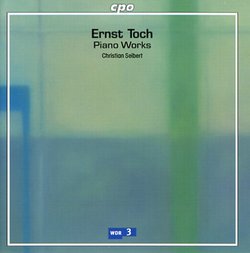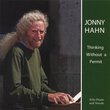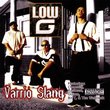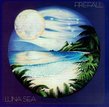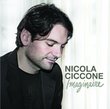| All Artists: Ernst Toch, Christian Seibert Title: Ernst Toch: Piano Works Members Wishing: 0 Total Copies: 0 Label: Cpo Records Release Date: 1/18/2005 Genre: Classical Styles: Chamber Music, Historical Periods, Classical (c.1770-1830) Number of Discs: 1 SwapaCD Credits: 1 UPC: 761203992621 |
Search - Ernst Toch, Christian Seibert :: Ernst Toch: Piano Works
CD DetailsSimilar CDs
|
CD ReviewsTaut, Understated, Charming, Intriguing, Personal J Scott Morrison | Middlebury VT, USA | 02/22/2005 (5 out of 5 stars) "A resurgence (well, a mini-swell) of interest in the music of Ernst Toch (1887-1964) seems to be occurring. The cpo label has been issuing performances of his string quartets and symphonies and now this CD of piano works has appeared. Toch is certainly not primarily known as a piano composer, and indeed all of these works are fairly early, none later than 1931. But they do seem to partake of the same aesthetic as later Toch, although perhaps there is more influence from Impressionism than in later works. This hour-long disc contains 35 separate numbers, so you can see that they mostly miniatures, some of them lasting less than a minute. The last set of pieces, and the largest work--and the latest to be composed (1931)--is the collection of 'Concert Études,' about which more later. The first two-thirds of the disc is devoted to twenty-two character pieces (and a tiny sonata), all pretty much in the same style. How to describe it? Well, Toch was self-taught and he never really quite fit into any specific style, but he borrowed heavily from both the Neo-Classic and the Impressionist styles. Could there be such as thing as a neoclassic impressionist? If so, that's early Toch. Form is balanced and clear to understand. Textures are linear (often simply two voices) but with delicacy of both harmony and dynamic. He tends to be unemphatic--few of these pieces rise above a conversational tone and none of them shouts. Yet, multiple listenings have convinced me that he was conveying important, and often personal, information in them albeit in quiet ways. The collections of pieces include the five 'Capriccetti' ('Little Caprices'), Op. 36, fourteen 'Small Town Pictures' ('Kleinstadtbilder'), Op. 49, the short (8 minute) Sonata, Op. 47, and three Burlesques, Op. 31. All of them are charming, witty or humorous, or all three. The first 'Little Caprice,' marked 'zart, nachdenklich' ('tender, wistful') actually starts out like it's going to be in the tortured hyper-chromatic harmonic language of Berg's Op. 1 Sonata, but within a few measures the atmosphere lightens and one begins chuckling; this is the kind of misdirection that a magician uses. You can almost hear him saying, 'Fooled you!'. That sort of thing happens again and again. One must remember that Toch, for all his serious craft, was also a musical prankster--remember his use of a hissing compressed air tank in the Symphony No. 3? Or his witty 'Geographical Fugue' for speaking chorus in which the names of exotic places are spoken in syllabic counterpoint? One thinks here of the witty works of Shostakovich, but without the sardonic edge.
Some highlights, for me, in the first part of the disc: The first and fourth 'Little Caprices' From 'Small Town Pictures': 'Junge Kätzchen' ('Young Kitten' - only 26 seconds long!); 'Alleingelassen' ('Left Alone'), inutterably sad, but restrainedly so; 'Gassenhauer' ('Street Song,' the last piece; it tries to be nonchalant but is bitonally menacing, actually--this was 1931 and Hitler was on the horizon) All three 'Burlesques' ('Gemächlich,' 'Lebhaft,' and 'Der Jongleur' ['The Juggler']--the latter occasionally played separately) The entire 8-minute Sonata--the first movement ('Quasi Toccata') and the wistful 'Intermezzo' are especially impressive Then we come to the ten 'Concert Études.' These are something else again. They almost certainly were inspired by Debussy's Études. They are arranged as two groups of five with the first of Group I corresponding to the first of Group II and so on. Although there is a pedagogical intent for these études, each has its own sound world. Particularly impressive are the two Impromptus. The first reminds one slightly of Debussy's 'Cathédrale engloutie' with washes of blurry harmonies; it has a middle section that sports gossamer ninth-chord arpeggios. The second sounds almost like a jazz ballad improvisation one might have heard thirty years later from someone like Bill Evans. One can only hope that this recording, played sensitively and brilliantly by pianist Christian Seibel, will spark some interest in concertizing pianists. I would love to hear some or all of the Concert tudes in a live performance. This is not music that hits you between the eyes with its immediacy. It takes a slowly developing acquaintanceship that ripens into loving intimacy. Come to think of it, that may be true for all of Toch's works. His music is not the kind that reveals its true worth on first hearing, but much of it amply rewards patient exploration. TT=59:16 Scott Morrison" |

